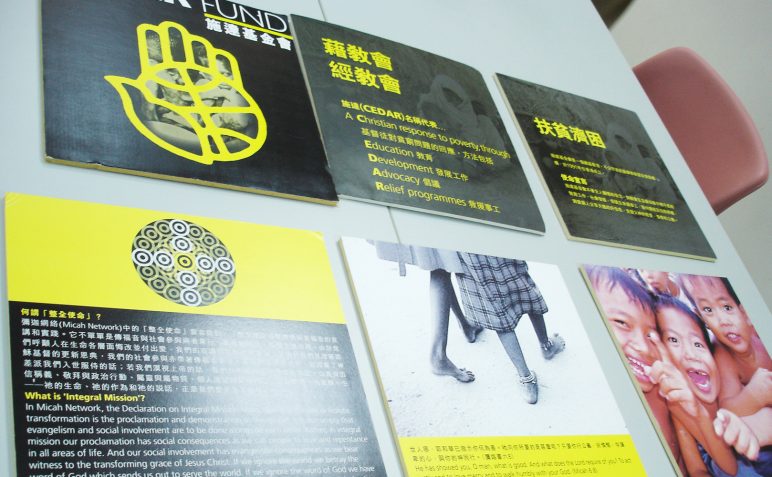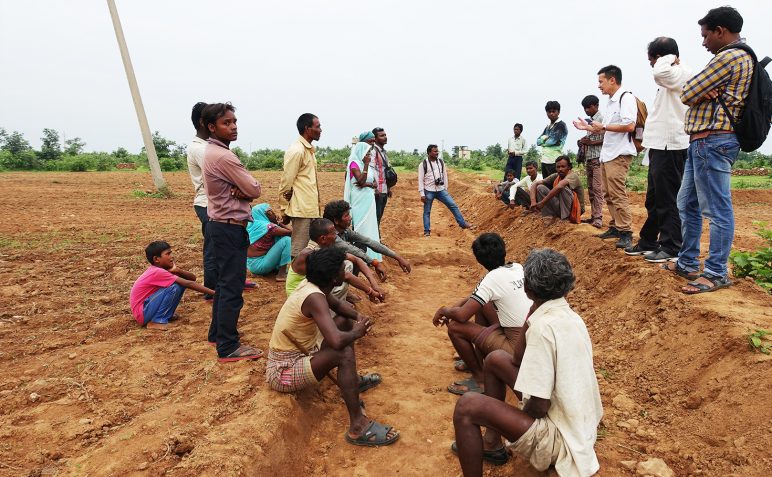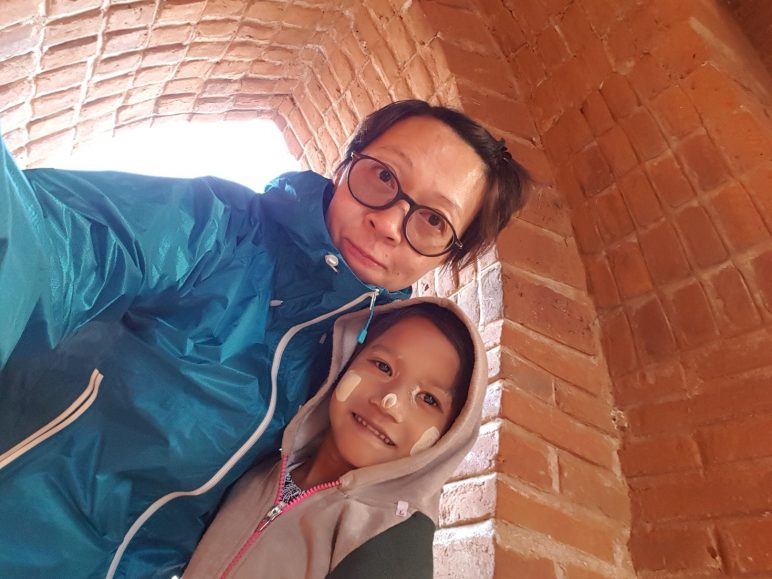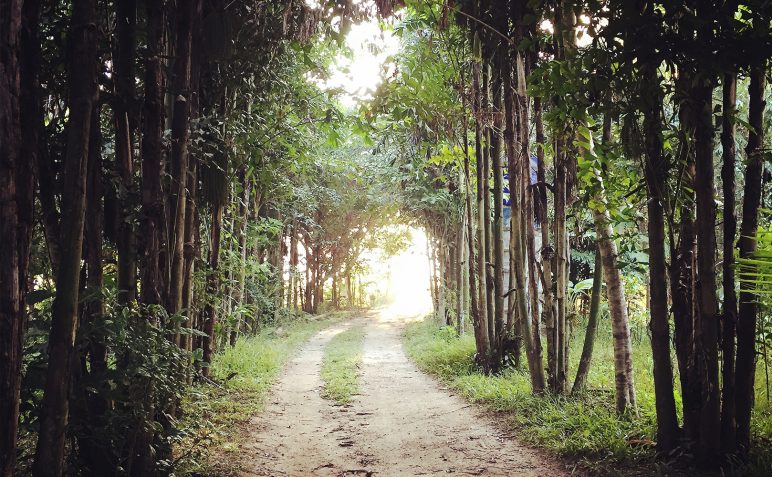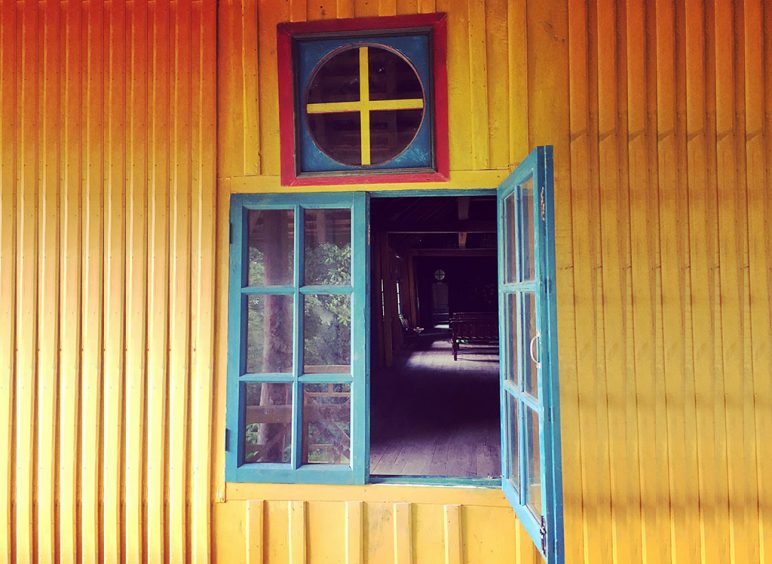[“SHARE” JAN – MAR 2018 ] TAKING ACTION
Interviewee: Grace Lai (Head of Partnership Development)
Interviewed and edited by: Jojo Poon
People take part in poverty relief works with different reasons. For Grace, the seed to care for the poor was sowed and rooted in her heart since her childhood years. “Every time the TV showed a commercial from a development aid organisations, I would be deeply moved… After I became a Christian, I wanted to do something meaningful. The moment came when I was changing jobs, where I recollected those old thoughts in my heart. I wanted to enter the poor’s community and live with them. Therefore, I began to realise this childhood dream by joining the development field.”
About 10 years ago, Grace went to Guizhou and Guangxi, and there began her walk with the poor. Before entering the field, Grace thought that visiting villagers and giving them material aid would be good enough to help the community develop. It was only after she got involved in development work that she realised this was not the case. “Some charitable organisations helped villagers by means of materials in kind or in cash. As time went by, villagers developed a mindset that external resources were better. Without intervention from foreign institutions, villagers could not live proper lives. All these only made the community even ‘poorer’, especially in their thinking.”
Grace points out that poverty alleviation should not work this way. “It is neither about teaching villagers what to do and how to do it, nor is it about giving them material things or knowledge in a privilege status. Rather, we, as an ordinary person, should discuss with the villagers about something they know well: their daily lives, their cultural customs, and their ancestral wisdom. Integrating into the local culture is our primary task; in order words, we should listen and learn rather than teach.”
In the face of the overwhelming belief among local officials and communities that building hardware or giving financial support is the best way to improve their living quality, Grace tried to pull the community together and encourage active participation. After a few attempts, villagers finally came to realise that the community shared responsibility in owning, building, and maintaining public facilities. Grace says that that particular experience benefitted the entire community, where the village as a whole has experienced the changes and built a shared culture among themselves.
“It’s quite interesting to see how development work unfold in each and every community. We may not be able to see the result instantly, but it is a definite joy to witness the growth of villagers throughout the process.” Grace stressed that the responsibility of development workers is to help the beneficiaries learn about their rights and be able to enjoy them. Every person, including the poorest of the poor, women and children, should be able to enjoy social services that cover the basic needs of their life. “We facilitate villagers to assess and analyse their living condition, and encourage them to take necessary action to improve their lives. That way, the community can take ownership in choosing appropriate development strategy that cater to their own needs and can sustain their community’s development.”
What impressed Grace the most is the changes female villagers made. “Given the belief that men are superior to women, women in the community generally take up the role of a caregiver in a family. Rarely are they given any chance to express themselves. Therefore, we would encourage villagers to let women help organise activities in major festivals for them to explore their talents beyond handling housework.” According to Grace, things started to change when one village was willing to try, other villages would follow. Gradually, more and more villages would be happy to include women in the discussion of different matters. “I remember an occasion when some women came to me, sharing their happiness of becoming representatives of women in their villages. They reinforce the building of fences along the river to prevent children from falling into it during summer. They were proud of themselves and they felt like they were living meaningful lives.” The sharing of these women is the best reward to Grace’s commitment to development work.
So, what makes someone like Grace who is so dedicated in serving the poor come back to Hong Kong? “Most Hong Kong people don’t know or agree to the rationale behind community development work. I hope by various ways of personal sharing, more people would come to grips with anti-poverty development, and there will be a paradigm shift among those who have been supporting poverty relief work.” May the aspiration of Grace to bring changes be blessed by God and lead to more life transformation.
Read other four interview articles:
Back To Newsletter>SHARE





